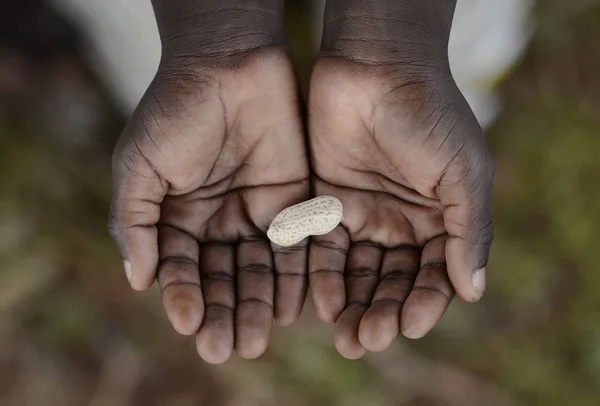Airborne diseases are a major public health concern in Nigeria, and they affect a large number of people each year. These diseases are caused by pathogenic microorganisms that are spread through the air, such as bacteria, viruses, and fungi.
They can be contracted by breathing in contaminated air, through contact with infected people or objects, or through ingestion of contaminated food or water.
Here are some of the most common airborne diseases in Nigeria:
1. Tuberculosis
Tuberculosis (TB) is a bacterial infection that mainly affects the lungs. It is spread through the air when infected people cough, sneeze, or spit.
Nigeria has one of the highest TB burdens in the world, with an estimated 157,000 new cases in 2019. In 2020, Nigeria ranked 6th among the 30 countries with highest TB burden in the world and 1st in Africa.
The disease is most common among people living in poverty, those with weakened immune systems, and people living in overcrowded conditions, especially in rural areas.
You can learn how to protect yourself from a TB patient.
2. Meningococcal Meningitis
Meningococcal meningitis is a bacterial infection of the membranes that surround the brain and spinal cord. It is spread through the air when infected people cough or sneeze.
Nigeria is part of the “meningitis belt,” a region of sub-Saharan Africa where large epidemics of the disease occur every few years. In 2017, Nigeria experienced a large outbreak of meningitis that affected over 14,000 people and killed over 1,100.
People who at increased risk for meningococcal disease include infants, teens and young adults, and older adults. In addition, people with weakened immune systems, such as those with HIV or those taking immunosuppressant drugs, are at increased risk for bacterial meningitis.
3. Measles
Measles is a highly contagious viral infection that spreads through the air when infected people cough or sneeze. It causes fever, rash, and other flu-like symptoms.
Measles can be prevented with a safe and effective vaccine, but in Nigeria, vaccination rates are low, and outbreaks of the disease are common.
In 2019, Nigeria had over 22,000 suspected cases of measles, with 72 deaths. Most of these cases were in Borno State.
The high rate of measles in Borno State is due to the low immunisation rates, overcrowded conditions in IDP settlements and overstretched health services.
4. Influenza
Influenza, also known as the flu, is a viral infection that affects the respiratory system.
It is spread through the air when infected people cough, sneeze, or talk. Influenza can cause fever, cough, sore throat, and other symptoms, and it can lead to serious complications, especially in people with weakened immune systems or underlying health conditions.
In Nigeria, influenza is a common cause of illness, especially during the rainy season.
UNICEF disclosed in 2021 that Nigeria recorded the highest number of pneumonia-related deaths of children under-five caused by overall air pollution in the world. Additionally, Nigeria also had the highest number of deaths of children under-five caused by household air pollution-related pneumonia.
In fact, in 2019, there were 67,416 deaths of Nigerian children under-five caused by overall air pollution-related pneumonia, while deaths of Nigerian children under-five caused by household-specific air pollution-related pneumonia were 49,591 during the same year.
5. Lassa Fever
Lassa fever is a viral hemorrhagic fever that is endemic in Nigeria and other West African countries. It is spread through contact with infected rodents or their urine or feces, as well as through human-to-human transmission.
Lassa fever causes fever, headache, muscle aches, and other symptoms, and it can lead to severe illness or death.
Lassa fever is most common in rural areas across Nigeria, especially where people live in close proximity to rodents.
One study reported that over 2,000 cases of Lassa fever occurred in Nigeria from 2018-2021.
6. COVID-19
COVID-19 is a viral respiratory illness caused by the SARS-CoV-2 virus. It is spread through the air when infected people cough, sneeze, talk, or breathe.
Nigeria has had over 200,000 confirmed cases of COVID-19, with over 2,500 deaths. The disease has had a significant impact on the country’s healthcare system, economy, and society as a whole.
Conclusion
It is essential for the government, healthcare providers, and individuals to work together to prevent and control these diseases through vaccination, infection control measures, and improved living conditions. With concerted efforts, the burden of airborne diseases can be reduced in Nigeria, leading to a healthier and more prosperous population.
ALSO READ:
- 5 Common Rainy Season Diseases In Nigeria
- 3 Common Childhood Diseases In Nigeria
- 5 Common Diseases in Nigeria and How to Prevent Them
- 6 Common Zoonotic Diseases in Nigeria
- 5 Common Silent Killer Diseases In Nigeria
- 5 Common Paediatric Emergencies in Nigeria
- 6 Prevalent Fungal Diseases In Nigeria
- Nigerian Child Vaccination Schedule 2022
- 5 Vaccine-Preventable Diseases In Nigeria
- 6 Common Inherited Diseases In Nigeria
Collins Nwokolo is a human physiologist, writer and health enthusiast. He loves writing helpful articles on health and fitness, which he enjoys sharing with everyone.









